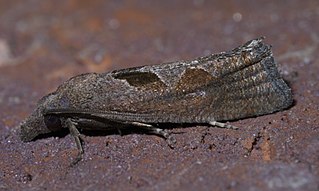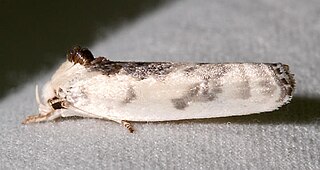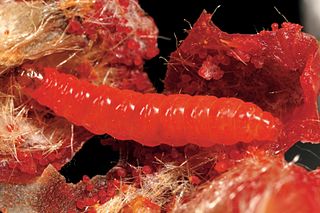Related Research Articles

Sir Francis Walsingham was principal secretary to Queen Elizabeth I of England from 20 December 1573 until his death and is popularly remembered as her "spymaster".

The Babington Plot was a plan in 1586 to assassinate Queen Elizabeth I, a Protestant, and put Mary, Queen of Scots, her Roman Catholic cousin, on the English throne. It led to the Queen of Scots' execution, a result of a letter sent by Mary in which she consented to the assassination of Elizabeth.

Walsingham is a village in North Norfolk, England, famous for its religious shrines in honour of the Virgin Mary. It also contains the ruins of two medieval monastic houses. Walsingham is 27 miles (43 km) northwest of Norwich.

Hyposmocoma is a genus of moths with more 350 species endemic to the Hawaiian Islands. The genus was first described by Arthur Gardiner Butler in 1881. Most species of Hyposmocoma have plant-based diets, but four species, such as Hyposmocoma molluscivora, eat snails. The caterpillars spin silk, which they then use to capture and eat snails. These are the first caterpillars known to eat snails.

Our Lady of Walsingham is a title of the Blessed Virgin Mary venerated by Roman Catholics, Western Rite Orthodox Christians, and some Anglicans associated with the Marian apparitions to Richeldis de Faverches, a pious English noblewoman, in 1061 in the village of Walsingham in Norfolk, England. Lady Richeldis had a structure built named "The Holy House" in Walsingham which later became a shrine and place of pilgrimage.

Thomas de Grey, 6th Baron Walsingham, of Merton Hall, Norfolk, was an English politician and amateur entomologist.

Aristotelia is a genus of moths in the family Gelechiidae. Well-known species are food plant specialists, and diverse hosts are used - Salicaceae, Solanaceae, Rosaceae, Fagaceae, Fabaceae, Asteraceae.

Dichomeris is a genus of moths in the family Gelechiidae erected by Jacob Hübner in 1818.

Isophrictis is a genus of moths in the family Gelechiidae.

Ethmia is a large genus of small moths. It is the type genus of the gelechioid family Ethmiidae, which is sometimes included in Elachistidae or Oecophoridae as subfamily.

Pelochrista is a Holarctic genus of moths belonging to the subfamily Olethreutinae of the family Tortricidae.

Antaeotricha is a genus of moths. It is the largest genus in the subfamily Stenomatinae, numbering over 400 species in the Western Hemisphere.

Agonopterix is a moth genus of the superfamily Gelechioidea. It is placed in the family Depressariidae, which was often – particularly in older treatments – considered a subfamily of the Oecophoridae or included in the Elachistidae.

Coenodomus is a genus of snout moths. It was described by Walsingham in 1888, and is known from India, Papua New Guinea, Bhutan, the Philippines, the United States, Indonesia, China, and Sri Lanka.

Symmoca is a genus of moths in the family Autostichidae.

Carposina is a genus of moths in the Carposinidae family.

The Stenomatinae are a subfamily of small moths in the family Depressariidae.
References
| This article on a moth of the family Scythrididae is a stub. You can help Wikipedia by expanding it. |